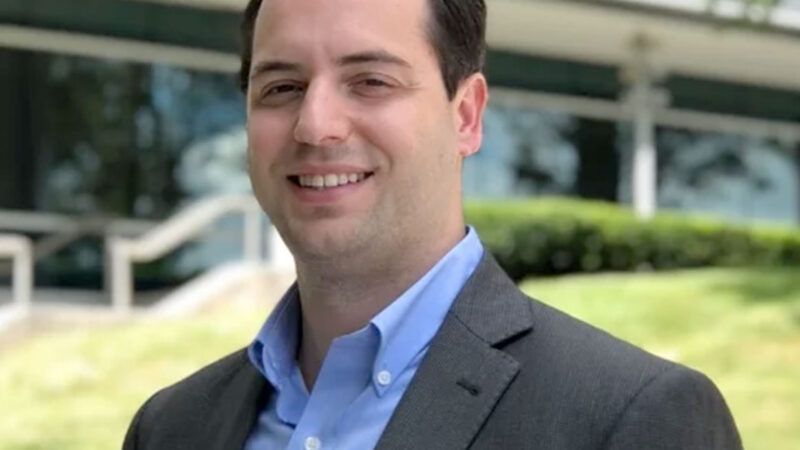How Erick Brimen Helped Launch a Honduran Charter City
"We want to attract international entrepreneurs and investors and become a financial center for the country and region."

In 2017, Honduras granted a charter to a private company allowing it to operate a zone of separate governing policies, called Zones for Economic Development and Employment (ZEDEs), inside of Honduras' borders.
Advocates hope that the zones will, through regulatory and governance innovation, create greater security and prosperity than the rest of the troubled country, famously mired in crime and corruption.
The first ZEDE is run by a company called Próspera, which launched its website publicly in spring 2020 and began operating in a 58-acre area of the Honduran island of Roatan; the company is now also operating a ZEDE on the mainland, in La Ceiba. One of its big selling points is no tariffs or trade barriers for nonhazardous or nonillegal items.
In October, Reason's Brian Doherty interviewed Próspera's Venezuelan-born CEO, Erick Brimen, about the project via Zoom.
Q: Many have tried to get a ZEDE charter. Why was Próspera the first to succeed?
A: I think what did it was our ability to position the advantages of ZEDE law in theory and connect them with economic development instead of saying we are trying to create a libertopia; economic liberty creates prosperity and generates jobs, and that's why we want to do it. We shifted the conversation away from advancing a political ideology towards, yes, liberty, but as a tool to development.
Q: Why the island of Roatan?
A: We want to attract international entrepreneurs and investors and become a financial center for the country and region. In Roatan [residents] speak English, use the dollar. Roatan is a Caribbean paradise. Crime is not an issue here. It's beautiful, with an international airport with flights to Houston, Miami, and Atlanta. Roatan is a former British colony, while the rest of Honduras is a former Spanish colony, so they have very different cultures.
Q: Did the existing population have to agree to the ZEDE?
A: A referendum has to be carried out if there is a preexisting population, but with no population then there is no one to consult. That's for residents; if there are property owners, every property owner has to opt into the ZEDE. Próspera thus far has incorporated on lands with no residents, all privately acquired at fair market prices, with no government intervention.
Q: Why would a person or company value being in Próspera?
A: What makes Próspera as a platform for government services unique is, instead of being structured as itself a provider of government services, it is a platform for others to provide dispute resolution, security. And every regulatory framework in the [Organization for Economic Cooperation and Development] is already recognized as legally compliant with our jurisdiction. A company can petition our internal governance structure to add a new regulatory framework, which can be based on an adopted framework from another country or an entirely newly created framework, which is already working out well with crypto and finance; we have several petitions now being analyzed.
One industry we will empower will be health care. Stem cells are an area where a doctor can do anything approved anywhere as long as they have insurance to cover legitimate risks and have patient consent. This will be the best place for a doctor licensed anywhere in the world to work with any drug or medical device.
Q: What are some tax benefits?
A: Whether land value or income or sales, taxes can never equal more than 7.5 percent of average GDP inside the ZEDE. The ZEDE pays the Honduran government 15 percent. The remaining 85 percent is available to [Próspera], and 50 percent of that revenue can be distributed as private dividends if the expenses of managing the jurisdiction allow.
So if the holding company is eventually publicly traded, we make it possible to be a shareholder in a publicly traded company that derives its value from the value of the economy under its jurisdiction. Since we believe liberty maximizes economic value, for the first time in history a publicly traded company can give investors the ability to monetize economic liberty and freedom.
This interview has been condensed and edited for style and clarity.


Show Comments (2)